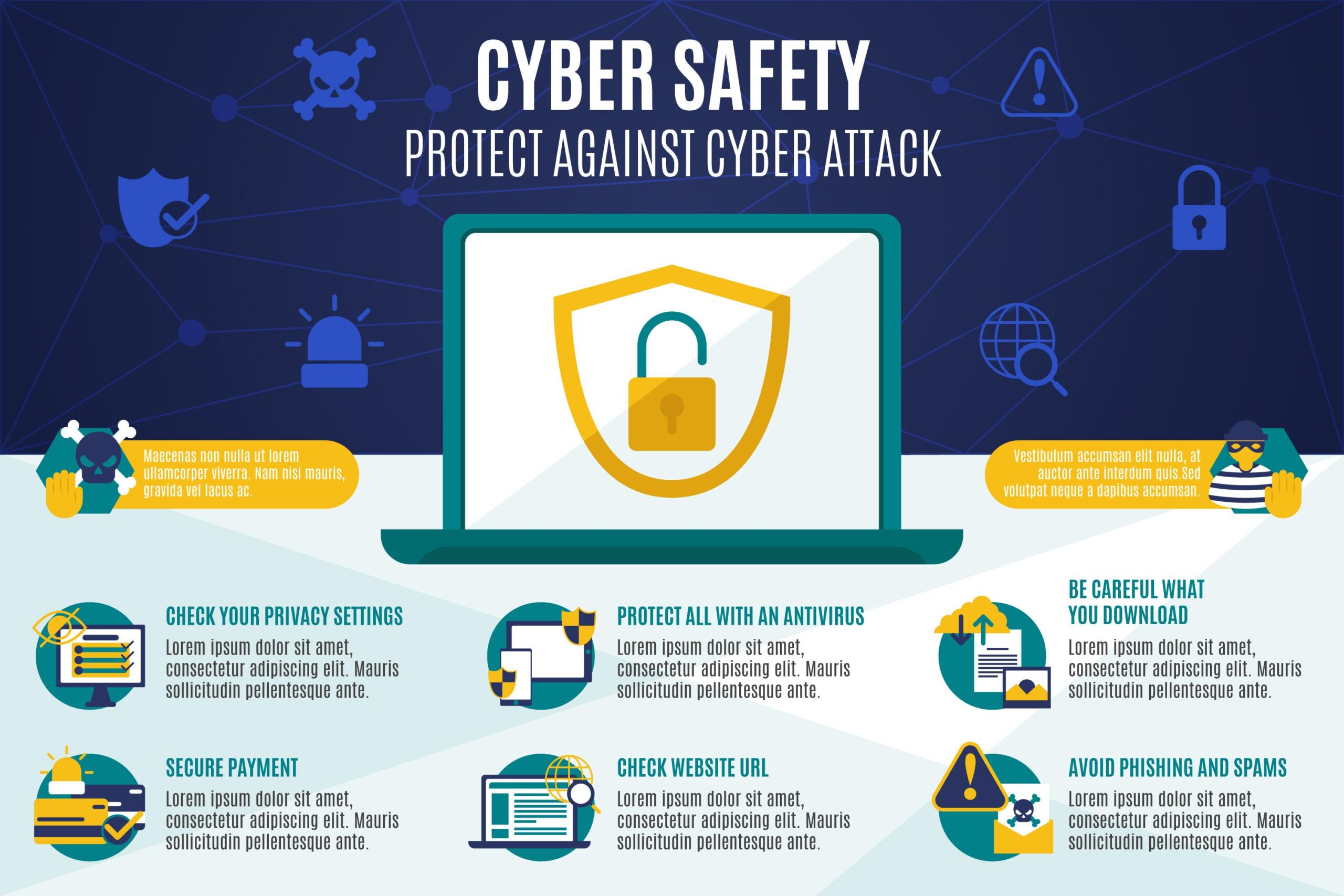
Who Needs Cyber Liability Insurance?
Cyber Liability Insurance is Coverage for Losses Associated with
- Data Breaches,
- Malicious Hacking,
- Ransomware, and
- Cyber Attacks.
Cyber Liability Insurance is designed for your small business! The threat of cyber attacks is real. Ransomware alone could have you paying an average of over $245,000 per event. Weinsurexyz makes it easy to get cyber insurance coverage to help protect your small business. Cyber insurance coverage is designed for a wide range of individuals and entities who may face financial losses or liabilities resulting from cyber-related incidents. Here are some key stakeholders for whom cyber insurance coverage is relevant:
- Businesses of All Sizes: Small, medium, and large businesses across various industries are exposed to cyber risks, including data breaches, ransomware attacks, business interruption due to cyber incidents, and liability for data privacy violations. Cyber insurance coverage can help businesses mitigate financial losses associated with these risks and cover costs such as data recovery, legal fees, regulatory fines, and customer notification expenses.
- Healthcare Organizations: Healthcare providers, hospitals, clinics, and other healthcare organizations handle sensitive patient data, making them prime targets for cyberattacks. Cyber insurance can help healthcare organizations manage risks related to data breaches, HIPAA violations, and regulatory compliance.
- Financial Institutions: Banks, credit unions, investment firms, and other financial institutions are vulnerable to cyber threats such as phishing scams, fraudulent transactions, and cyber extortion. Cyber insurance can provide coverage for losses resulting from cyber fraud, funds transfer fraud and regulatory fines.
- Retailers and E-commerce Businesses: Retailers, e-commerce platforms, and online merchants process a vast amount of customer payment data, making them attractive targets for cybercriminals. Cyber insurance can help cover costs associated with payment card data breaches, supply chain disruptions, and cyber extortion.
- Technology Companies: Technology firms, software developers, and IT service providers face cyber risks related to software vulnerabilities, system outages, and data breaches. Cyber insurance can provide coverage for errors and omissions (E&O) liability, intellectual property infringement, and technology errors or failures.
- Professional Services Firms: Law firms, accounting firms, consulting companies, and other professional services providers store sensitive client information and are subject to regulatory requirements. Cyber insurance can help protect these firms against lawsuits alleging negligence, breach of confidentiality, or data privacy violations.
- Nonprofit Organizations: Nonprofit organizations, charities, and educational institutions may collect and store sensitive donor or student information. Cyber insurance can help nonprofit organizations manage the financial impact of data breaches, cyber extortion, and reputational damage.
- Government Agencies and Municipalities: Government entities at the local, state, and federal levels are increasingly targeted by cybercriminals seeking to disrupt operations, steal sensitive information, or perpetrate fraud. Cyber insurance can help governments recover from cyber incidents and ensure the continuity of essential services.
Overall, cyber insurance coverage is essential for any individual or organization that stores, processes, or transmits sensitive information electronically and faces the risk of cyber threats and data breaches. It provides financial protection and peace of mind in an increasingly interconnected and digitally-dependent world.
What Is Cyber Liability Insurance?
Cyber Liability Insurance is an optional coverage designed to help small businesses pay for losses associated with data breaches, malicious system hacking, ransomware, and other cyber attacks on the business network. Such cyber events may put your customer and business data at risk. The costs to contain the damage and repair the systems and resulting customer notification and fraud monitoring may be prohibitive for a small business. That’s where cyber insurance can assist you.
All organizations, regardless of their size or industry, encounter cyber risk in today’s technologically driven world. As technology continues to advance and evolve, so do the potential threats that businesses face. This is precisely why it is crucial for every business and organization to have a comprehensive cyber security plan in place, along with cyber liability insurance, in order to effectively manage and minimize cyber risk. At Weinsurexyz, we recognize the intricate nature of cyber threats and offer tailored solutions to safeguard and ensure your valuable business assets.
When personally identifiable information from a business database falls into the wrong hands, the costs can run into millions of dollars. Every person affected must be notified, their credit must be monitored, the security breach must be investigated, lawyers must be hired, government fines must be paid, and lost trust and business must be regained.
Why Do I Need Cyber Liability Insurance for My Small Business?
On average, the cost of a data breach for a small business is between $36,000 and $50,000. However, a business that experiences a cyber attack could pay upwards of $200,000—and some cyber event costs reach millions of dollars. The expenses related to containing and repairing the system damages, coupled with the costs to communicate and address customer fraud and damage claims, can be crippling to a small business. Securing coverage for cyberattacks can help small businesses cover the resulting costs in terms of liability and damages.
Here are a few more reasons to consider Cyber Liability Insurance for your small business. These statistics show small businesses are at risk for cyberattacks, breaches, or other malicious hacking events:
Cyber Attacks. 88% of small business owners felt their business was vulnerable to a cyber attack. It could cost anywhere from $200,000 to $7.68 million per incident to resolve such attacks, forcing many small businesses to close.
System & Data Breaches. 63% of small businesses reported experiencing a data breach within 12 months. 83% of all data breaches are financially motivated.
Ransom & Extortion. 43% of small businesses have been identified as being the target of a ransomware attack. The average ransom requested by threat actors is between $10,000 and $50,000, with remediation averaging over $245,000.
Phishing Threats. More than 30% of small businesses are targeted by phishing scams which can cause upwards of 16 hours of downtime.
Forensic & Legal. Forensic investigations, including a vulnerability assessment, can cost on average between $10,000 and $30,000 and may involve additional lawsuits if you are found to have violated a regulation.
If your company handles clients’ sensitive customer or employee data – such as account information, health information, personally identifying information or other confidential data – your business could be held liable if the security of that data should be compromised. Cyber liability insurance is designed to protect your business against expenses and liability associated with the loss or theft of data or breaches of data security, especially when the information that is compromised is hosted on your company’s own servers.
Even if your firm doesn’t provide hosting services, if your company comes into contact with confidential client information in the course of your work, you should consider this coverage. All it takes is one misstep – such as a lost or stolen backup drive containing customer account information or an unsecured client database or network – and you could find yourself facing a costly cyber liability lawsuit.
We could talk about Cyber Liability Insurance all day…
We really want you to understand Cyber Liability Insurance because it is essential to most small businesses today! Does your small business collect customer information? Everything from protected personal information (PPI) to credit card and payment information can be put at risk by a cyber attack. Data breaches don’t just impact your business; they impact your customers too. Cyber insurance coverage is designed to help with the costly aftermath of a data breach, ransomware, or other cyber attacks.
What Does Cyber Insurance Cover?
13 Risks Covered by a Cyber Liability Policy Covers
Cyber coverage can safeguard your company against the devastating financial consequences of a cyber attack. Weinsurexyz offers customized Cyber Liability Insurance solutions depending on your business’s level of risk, with coverage options available to address:
- Restoring and recreating lost data
- Restoring a computer system to its pre-attack status
- Lost business and extra expenses related to cyber attacks
- Professional PR firm services to communicate your response to cyber attacks and data compromises
- Forensic IT services to investigate potential data breaches
- Notification services that identify and notify potential victims
- Personal services for those affected
- Most related legal review and defense costs
- regulatory defense expenses/fines,
- crisis management expenses,
- business interruption,
- cyber extortion, and
- Betterment.
Cyber liability insurance policies generally cover lawsuits alleging that your firm is liable for denial of service attacks or a client’s inability to access a website or system as well as disclosure of the client’s confidential information, malicious or accidental loss of digital assets, or data, data tampering, unauthorized access to or use of data, introduction of viruses or malicious code, terrorism threats, cyber extortion, and certain other situations. These policies may also cover expenses associated with restoring data or systems, crisis management and public relations, regulatory action, notification, legal defense, and business interruption.
Cyber Liability Insurance Typically Excludes:
- Loss from acts of war, terrorism, invasion, nuclear events, or insurrection
- Failure due to an electrical power supply network or internet service provider
- Costs to research and correct any system deficiencies, including upgrades
- Criminal investigations or proceedings
- Reckless disregard for your computer system or data security
- Any knowing violation of the law by yourself
- Any cyber attack occurring before the coverage term
- Identity theft not reported to the police
Q.How does Cyber Liability Insurance work?
A. After securing your Cyber Liability Insurance, you pay a monthly or annual premium based on your chosen annual limit and business details. Your policy documents are the legal contract between your small business and the insurance company. While your policy is in force, the insurance company agrees to pay claims and associated expenses stipulated by the policy.
Q. Isn’t this already covered under other business insurance policies?
A.No, only Cyber Insurance provides the expert resources and critical coverage you need to confront the financial, operational, and reputational damage a cyber-attack can inflict.
Q. What does a Cyber Insurance policy typically cover?
A. Typically, cyber insurance covers losses and liabilities related to cyber attacks, including customer communication and fraud monitoring, and damages to your computer systems and data.
What is covered by this coverage will be fully detailed in the policy documentation.
Q. What doesn’t a Cyber Insurance policy typically cover?
A. Cyber insurance does not typically provide coverage for attacks related to a nuclear event, war, or criminal investigations or proceedings. It doesn’t cover loss from power outages or internet provider interruptions. The cost to research or correct any deficiencies is not covered, including any upgrades you decide to make to your system after the cyber attack to prevent future attacks. Any knowing violation of the law by you is not covered. Any act occurring before the coverage term is also not covered.
What is excluded by this coverage will be fully detailed in the policy documentation.
Is cyber Insurance required by law?
A. Cyber Insurance is not required by law. It is an optional type of coverage.
As policies and coverage vary by carrier, many companies contact us for advice on which option is best for their type of business. Our We Insure XYZ agents are here to help you select the right coverage whether you are a developer, engineer, consultant, or administrator.
Request a free quote. We will respond within 24 hours during the week and can begin your coverage that same day. If you are unsure as to what insurance is best for your tech business needs, our licensed insurance agents can help. We’re open Monday to Friday from 9:00 a.m. to 5 p.m. Eastern Time. You may reach us at (888)-540-7374.

